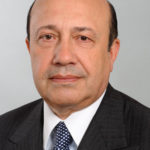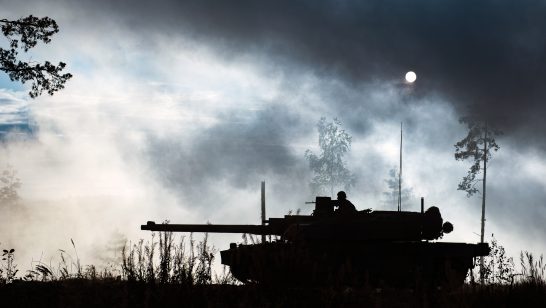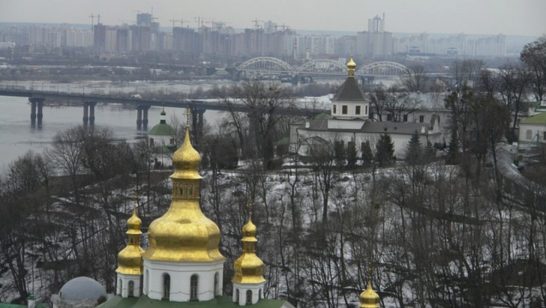
Igor Ivanov, former Foreign Minister of Russia, delivered the following speech to the European Leadership Network focusing the improvement of Nato-Russia relations in London on 25th January 2011
Good evening ladies and gentlemen. It is a great pleasure and honor to participate in the discussion with such prominent personalities about the key problems of Euro-Atlantic security. I am sorry that for some unforeseen problems I cannot take part in your meeting tomorrow. Lord Desmond Browne was kind enough to ask me to speak this evening about Russia-NATO relations and to answer a very simple question about those relations: where next?
For two decades we have been trying to solve this problem: how to arrange the proper relationship between Russia and NATO? Some of those present here today, including myself, have been very much engaged in that process. And we cannot help but admit that our efforts have not exactly been crowned by success, so far. We can search and find reasons for that.
While we try to grasp the essence of all the problems, we must also see the basic one, standing like an impenetrable wall between NATO and Russia. It is mutual mistrust. We stopped being adversaries but have failed to become partners. We have demolished the Berlin wall, but cannot crush the psychological barrier dividing us. We still haven’t realized fully that in the globalised world there can only be one security for all. Either we all have it or nobody does.
Documents setting out the principles of “mutual relationship, cooperation and security” for the Russia and NATO relationship were signed in 1997 and 2002. And good documents they are. But the events in Yugoslavia in 1999 and in the Caucasus in 2008 demonstrated that the agreed principles have remained on paper and have failed to enter the practice of our relations.
This state of affairs can satisfy nobody.
Hence the subject of the Russia-NATO Summit in Lisbon last November. Its declaration mentions “striving for the development of a strategic partnership”. Partnership as I see it is a reasonable middle ground. It means that we have to drop the habit of holding to extreme positions. As President Dmitri Medvedev said in Lisbon, we do not currently envisage a situation “when Russia might join the North Atlantic Alliance”. On the other hand it is equally obvious that you cannot talk about Euro-Atlantic security without Russia, without considering its interests.
So what remains is the question of how to build a partnership that takes into account everyone’s interests. How do we do that and exactly what does it require in practice? This is the question. Let me share with you some ideas on that subject.
We need three elements to reach our goal: political will – a positive agenda – and mechanisms for implementing agreements. These are exactly those elements that allowed Presidents Dmitri Medvedev and Barack Obama to sign the new START treaty that will soon come into force.
The political will, it seems, is very much there. It is evident from the Russia-NATO Council joint statement adopted in Lisbon, and from the statements of Dmitri Medvedev and Anders Rasmussen. At least this is the case officially.
As for the positive agenda, here, too, we see its first elements emerging. This is missile defense, first of all, and then conventional arms control in Europe, non-proliferation, and cooperation over Afghanistan. What’s important is that concrete work has to start across these issues in working groups.
In Lisbon we also succeeded in accepting – and this is very important – the idea of a mutual survey of common challenges to security in the 21st century. This confirms the belief that we do have common security threats, which means that Russia and NATO’s security is intertwined and indivisible.
Additionally now, far-reaching trust-building measures are needed in the coming years, so as not to leave yet one more empty declaration.
Within all this we have a problem that is of a special significance for Russia – NATO relations. This is the missile defense problem. It is the equivalent of the strategic offensive weapon problem to Russian-American relations.
The missile defense problem is about security and also about creating the highest level of trust.
The Russia-NATO Council has started a comprehensive joint analysis of the future framework of cooperation in missile defense. The first results of that work will be presented to the meeting of ministers of defense of the Russia-NATO Council in June 2011. That will be a litmus test for futher progress.
There is also, as I see it, another issue of paramount importance for the future relations of Russia and NATO. Russia, NATO, the Alliance members – we all talk of partnership but we also have our conceptual documents on defense and security. And if you look carefully you will see that all these documents, essentially, are still based on the Cold War-era deterrence principle. I mean the philosophy of those documents. In the very well done report by Simon Lunn and Ian Kearns, prepared especially for today’s meeting, I noted a lot of questions descending from the resulting ambiguity.
It is political double-talk and understatements that create suspicion and mistrust. This is why the obsolete concepts have to give way to a new approach to Euro-Atlantic security. And I speak about all countries here, including Russia.
I’m convinced that the nations in the Euro-Atlantic space, considering their historic experience and current common security interests, are perfectly able to strive for the ambitious goal of building a security community in our region.
By a Euro-Atlantic security community I mean an inclusive, undivided security space free of opposing blocks and gray areas. Within this space disputes would be expected to be resolved exclusively by diplomatic, legal or other non-violent means, without recourse to military force or the threat of its use. All would be bound together by a shared understanding of the major challenges facing member states and ready to respond to them with effective organization and action.
This is not pie in the sky. This is the order that the countries of the Euro-Atlantic area have already pledged to build at the Cold War’s close. It is the vision at the very heart of the 1990 Paris Charter. It is what the 56 countries in the Organization for Security and Co-operation in Europe have spelled out in detail in a dozen documents, from the 1991 “Berlin Mechanism” to the 1999 Istanbul summit’s “Charter for European Security”.
Obviously the last two decades’ experience labels this period as the time of lost opportunities. But there is no need to despair about it.
We have now, for several reasons, a new and a good chance to start laying a solid foundation for NATO-Russia partnership.
Perhaps the most crucial step toward realizing the partnership vision is to redouble our efforts to design concrete measures with the large goal in mind. I’ll give some examples:
- Achieving a genuinely collaborative approach to missile defense not only would address a threat, but would remove the misgivings blocking progress toward a common security space.
- Adjusting operational doctrine guiding strategic, tactical and conventional forces in order to increase early warning and decision-making time for all would not only be generally stabilizing, but a big step toward ending the militarized framework of NATO-Russian relations. Meaning that the good ideas have to seep down, from general declarations to operative instructions.
- Reinforcing the cohesion and effectiveness of the European Union, NATO, other key regional institutions not only would address what is needed in meeting the new security challenges but would give members confidence to invest in a larger security community. Meaning that Moscow does not want to destroy European structures, but rather to see them adjusted to new realities of our mutual interests.
- Ensuring that the responsible exploitation of hydrocarbons and other resources in the Arctic becomes a reason to cooperate rather than compete not only would remove an unnecessary source of tension but would constitute an early building block on the path to a Euro-Atlantic security community. Meaning that you do not have to create new tensions where new cooperation is more appropriate.
This is a partial list of what must be done if governments are serious about building a stronger, inclusive European security order.
What I am saying about Euro-Atlantic security is not of course, only my idea. With my colleagues from Russia, the US, and European countries we are working together in the so called Euro-Atlantic Security Initiative, co-chaired by Senator S. Nunn, Ambassador W. Ischinger and myself.
What we are doing is trying to formulate common ideas and concrete proposals for our governments and public opinion.
During the Munich Security Conference in February we shall create a working group on Missile Defence and we are happy that Lord Browne will be participating in this very important work.
I am sure that the work of the European Leadership Network is also very important as we are working in the same direction. Concluding, I want to say that I’m fairly optimistic about the progress in building strong European security, and I expect that it shall be our generation, not some other in the distant future, that will encounter that new reality.
The opinions articulated above represent the views of the author(s), and do not necessarily reflect the position of the European Leadership Network or any of its members. The ELN’s aim is to encourage debates that will help develop Europe’s capacity to address the pressing foreign, defence, and security challenges of our time.



